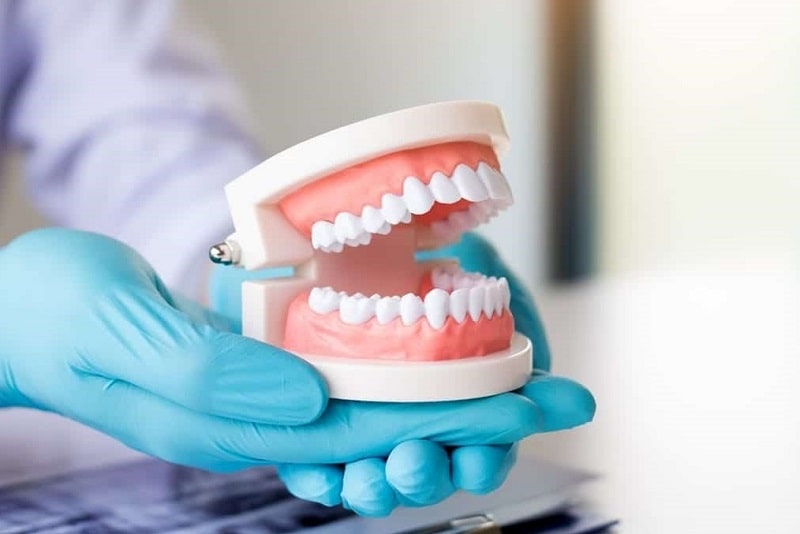In the case of missing teeth and considering an excellent tooth replacement in order to restore your oral health, you need to know how critical your decision is. Deciding to get a tooth replacement is a big one that should be carefully analyzed to ensure it’s a great choice according to your needs and preferences. These days, cosmetic dentistry is providing people with a variety of dental cosmetic treatments, including different types of tooth replacements for the ones with missing teeth.
There are a variety of tooth replacement treatments available, and you should weigh the benefits and features of each before you decide which is best for you. Here at Pearl Dental Group, many experienced cosmetic dentists in North York help and guide their patients to know their requirements and find the most suitable option to meet their needs. Dentures in different forms and types are one of the most popular procedures that patients with missing teeth pick. But will dentures be the best choice for you? Most patients are concerned about the process and experience as well as what life will be like after getting a denture. In this article, the most important questions patients usually ask are answered to make you fully aware of dentures as a tooth replacement.
Read More: Cosmetic Dentistry Cost in Toronto

What are dentures?
Having several missing teeth or needing some dental extractions, dentures can be a good option to restore your oral well-being. Fortunately, today’s products are significantly natural and realistic looking, so you don’t need to worry about the appearance of your smile. The function of dentures is similar to your natural teeth, so you won’t feel awkward as you will be used to them after a while. Whether your condition is caused due to dental emergencies or other reasons, dentures can meet your needs perfectly except in special circumstances.
How is the procedure for getting a denture?
When you first visit your cosmetic dentist for dentures, you need a professional dental checkup and a full consultation. Your cosmetic dentist can make some helpful recommendations based on your current needs. For instance, some patients can restore their beautiful smile with easier treatments like tooth bridges and don’t need to get dentures. In the event you qualify, your cosmetic dentist may remove all your existing teeth, and you need to wait for a few weeks to allow your gums to heal and prevent possible gum disease in the future. This step won’t be performed for all denture candidates. In most cases, your immediate dentures will be created, and your final denture will be fitted for you after four to six months.
Read More: IFHP Insurance in Toronto
Are dentures more beneficial than dental implants?
Dental implants are a type to tooth replacement as well. Unlike dentures, dental implants aren’t removable as they are implanted directly into the bone. According to an implant dentist, getting dental implants is a better choice for those who want a single or few teeth replaced. Dentures and dental implants are both significantly beneficial, and you need to choose the one that fits your requirements.
Dentures won’t be affected by teeth whitening treatment and cab be damaged if you don’t maintain them properly, so try to take care of them carefully and follow your cosmetic dentist’s in Toronto instructions to enjoy your beautiful smile!




